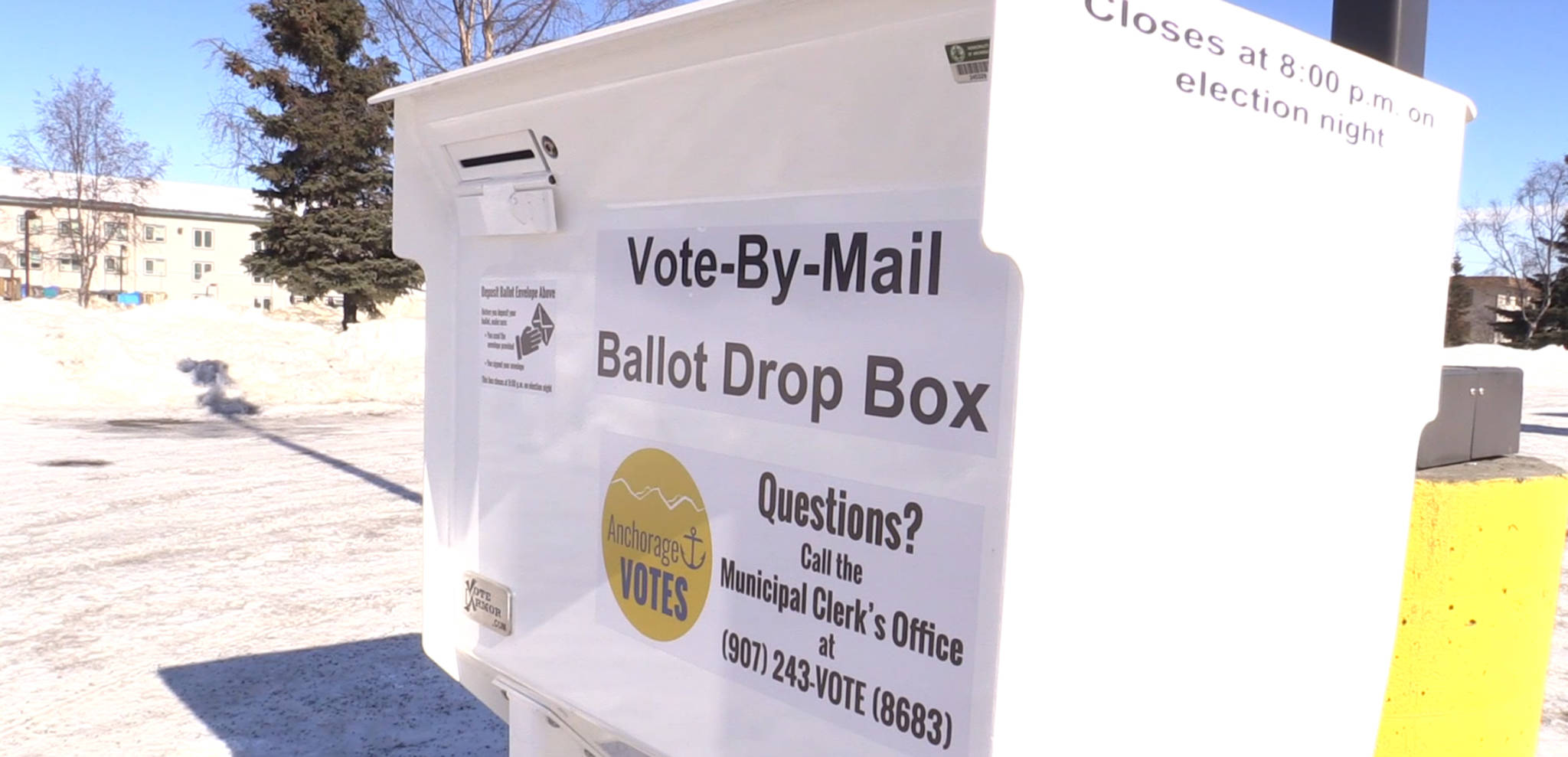By the numbers alone, Anchorage’s first election held by mail has been a smashing success.
Election Day was Tuesday, and almost 80,000 votes have already been received by elections officials, setting a record for the most ever cast in an Anchorage muncipal election.
State elections officials have already been asking the obvious question: If it worked for Anchorage, could it work for the rest of the state?
“I think it very well might,” said Sen. Gary Stevens, R-Kodiak and a member of the state’s elections policy task force. “If half of our population is voting by mail and it’s a good experience, why wouldn’t the rest of the state want to do that?”
In a 2017 report to the state Legislature, Alaska Division of Elections director Josie Bahnke said the state’s election system faces a swath of challenges: The state’s elections equipment is old and needs to be replaced. The state is under court orders regarding ballot accessibility. There’s an immense budget crunch.
Simply replacing elections equipment wholesale would cost $6.7 million, Bahnke said at the time, and wouldn’t fix other issues with the election system. Instead, Bahnke convened the task force and asked it to consider a simple question: If Alaska needs to replace its elections equipment, does it also make sense to examine the voting process at the same time?
This summer, the task force is expected to make a recommendation to Lt. Gov. Byron Mallott, who oversees the state’s elections system. Members will meet in Anchorage in May to examine equipment from different vendors and begin to finalize their advice.
That recommendation will likely be one in favor of a hybrid election model, one that uses voting by mail in most portions of Alaska but allows traditional polling places in areas where mail service isn’t reliable.
That recommendation wouldn’t be implemented for the 2018 election, but it could be for the one in 2020 or 2022.
Colorado, Washington and Oregon already have statewide vote-by-mail programs; California’s will begin this year. Alaska’s would likely be similar, but different in detail from all of those states.
In January, members of the task force met in Juneau’s State Library, Archives and Museum to discuss their work. Leading part of the discussion was David Becker, executive director and founder of the Center for Election Innovation & Research in Washington, D.C.
“Every state wants to speak of itself as a special snowflake,” he said. “That’s actually true for Alaska.”
By phone last week, he said vote-by-mail can work in Alaska, and Anchorage’s experience is no surprise. Applying Anchorage’s experience to the rest of the state might not work well, which is why a hybrid model is being considered.
“How can we make sure that the overall system works for everybody, those people who prefer to vote in person, those who live in rural areas, remote areas?” he said.
Becker, whose organization is a nonprofit, nonpartisan effort, has worked with states across the country. The election policy task force — which includes municipal, state, executive, industry and community representatives — is something unique in his experience, and he’s found it transparent and effective.
As for voting by mail, he thinks the idea would be a money-saving one for Alaskans.
“There is good evidence that when more people vote by mail, costs are significantly reduced,” he said.
Although Anchorage saw a surge in turnout for its first vote-by-mail election, Alaskans shouldn’t assume that would happen with a similar statewide program. The cost savings and efficiency are the main benefit, he said.
If the task force does recommend a change to the way the state runs elections, it would be up to the lieutenant governor to suggest legislation and up to the Alaska Legislature to implement it. Mallott is running for re-election this fall and clearly supports the idea of reforms.
Though unavailable for an interview on Friday, he said in January that a successful reform will generate no parades.
“If everyone forgets, leaving only the action … we will all have been successful,” he said.
Stevens is running for the Republican lieutenant governor’s nomination, and so is Sen. Kevin Meyer, R-Anchorage. According to Republican party straw polls, Meyer leads that race, ahead of Stevens, former legislator Lynn Gattis, Edie Grunwald and Stephen Wright.
On Friday, Meyer said the initial reports from the Anchorage election appear promising.
“It sounds like they’ve had a huge turnout, which is always good,” he said.
He said any vote-by-mail system should have enough security to prevent fraud, and both he and Stevens said rural Alaska cannot be left behind.
The office of the current lieutenant governor said that is a priority.
“I don’t know what (the task force) will recommend, but what I can tell you is Alaska is unique among all the states with vast distances between remote precincts and urban hubs,” said Claire Richardson, chief of staff to Lt. Gov. Mallott, by email. “Any system designed for our state will have to work for all of Alaska.”
• Contact reporter James Brooks at jbrooks@juneauempire.com or 523-2258.

